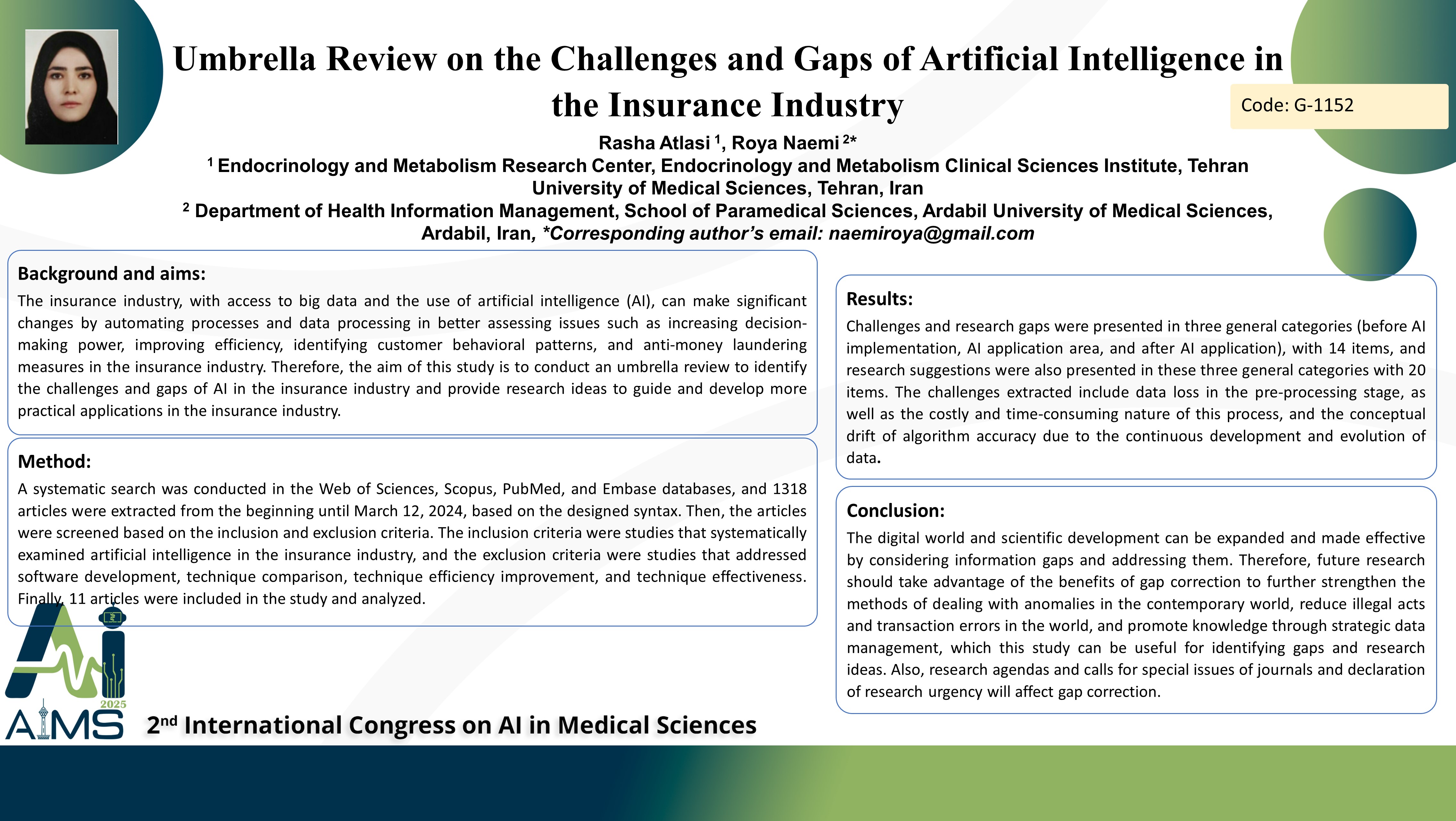Umbrella Review on the Challenges and Gaps of Artificial Intelligence in the Insurance Industry
Code: G-1152
Authors: Rasha Atlasi, Roya Naemi * ℗
Schedule: Not Scheduled!
Tag: Health Policy, Law & Management in AI
Download: Download Poster
Abstract:
Abstract
Background and aims: The insurance industry, with access to big data and the use of artificial intelligence (AI), can make significant changes by automating processes and data processing in better assessing issues such as increasing decision-making power, improving efficiency, identifying customer behavioral patterns, and anti-money laundering measures in the insurance industry. Therefore, the aim of this study is to conduct an umbrella review to identify the challenges and gaps of AI in the insurance industry and provide research ideas to guide and develop more practical applications in the insurance industry. Method: A systematic search was conducted in the Web of Sciences, Scopus, PubMed, and Embase databases, and 1318 articles were extracted from the beginning until March 12, 2024, based on the designed syntax. Then, the articles were screened based on the inclusion and exclusion criteria. The inclusion criteria were studies that systematically examined artificial intelligence in the insurance industry, and the exclusion criteria were studies that addressed software development, technique comparison, technique efficiency improvement, and technique effectiveness. Finally, 11 articles were included in the study and analyzed. Results: Challenges and research gaps were presented in three general categories (before AI implementation, AI application area, and after AI application), with 14 items, and research suggestions were also presented in these three general categories with 20 items. The challenges extracted include data loss in the pre-processing stage, as well as the costly and time-consuming nature of this process, and the conceptual drift of algorithm accuracy due to the continuous development and evolution of data. Conclusion: The digital world and scientific development can be expanded and made effective by considering information gaps and addressing them. Therefore, future research should take advantage of the benefits of gap correction to further strengthen the methods of dealing with anomalies in the contemporary world, reduce illegal acts and transaction errors in the world, and promote knowledge through strategic data management, which this study can be useful for identifying gaps and research ideas. Also, research agendas and calls for special issues of journals and declaration of research urgency will affect gap correction.
Keywords
Artificial Intelligence, Insurance, Challenges, Gaps
